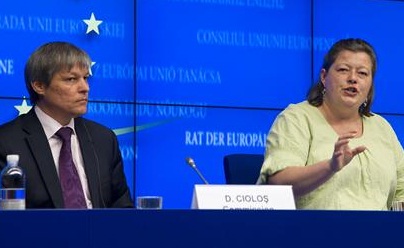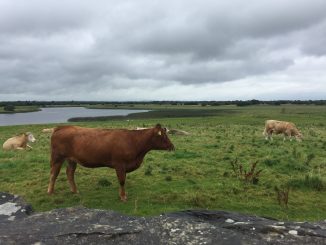At their regular Council meeting in Brussels on 15 May, ministers of agriculture again demonstrated a strong allergic reaction to the Commission’s greening proposals. The meeting, which was livestreamed, revealed a general mood for renationalising and watering down any serious steps towards more sustainable farming systems or environmental efforts to be adopted by farmers as a condition for receiving public money, so as to respond to the challenges climate change loss of biodiversity and soil fertility.

Upon the initiative of Luxembourg, followed by the UK, Ireland, Sweden, the Netherlands, Germany and a number of other countries delegations discussed the so-called menu approach to greening measures, meaning that Member States would be able to chose à la carte between different farming practices which would be adapted to the regions and countries concerned. Many delegations had urged the Commission to “ease” the greening requirements, arguing mainly against bureaucratic controls (“red tape”), which would be needed to implement more environmentally-friendly farming practices such as crop diversification or crop rotation.
Commissioner Cioloş offered a paper for reflection, showing understanding that farming practices comparable to systems such as organic farming, with positive effects on the environment and sustainable farming methods, might be freed of additional greening requirements. He rejected the demand of national delegations that Member States and farmers should be allowed to simply choose which of the greening requirements proposed by Commission they will implement as a prerequisite for funding. He argued that it was in fact the Member States that were producing more bureaucracy or “green tape” by making the control process more complicated.
The Commissioner also rejected the idea to completely shift the greening requirements from the first pillar of the CAP into Pillar 2 thanks to an additional 10% modulation of direct payments money.
So far the European Parliament has been invisible in this debate. The Committee on Agriculture previously decided that no position on CAP proposals should be taken before a budget for the period until 2020 is agreed. Draft reports will therefore only be published in June and negotiations on amendments will only start after the summer. This means the Committee will only be able to vote on a position in October at the earliest. By then, the Council might already have reached an agreement with the European Commission.
Further information:
- Green groups decry ‘depressing’ EU farm reform deal, Euractiv – 15.05.2012
- Video footage of the event: http://tvnewsroom.consilium.europa.eu/event/agriculture-and-fisheries-council-may-2012/
- Official press release: http://www.consilium.europa.eu/uedocs/cms_Data/docs/pressdata/en/agricult/130266.pdf
- Report on Danish Presidency website: http://eu2012.dk/en/NewsList/Maj/Uge-20/post-agri




